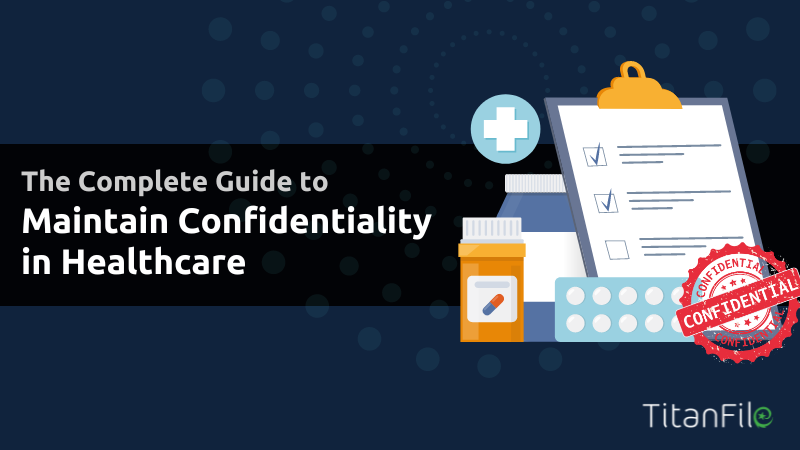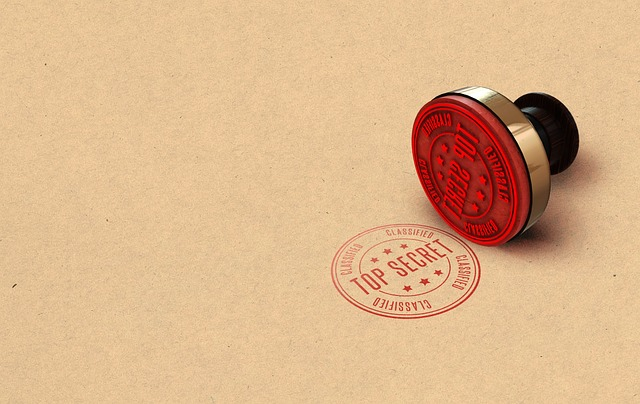It is increasingly important for healthcare providers to abide by best practices in order to maintain patient confidentiality and privacy, especially in this digital age. This article will guide through the significance of preserving patient information securely and legally, with advice such as informed consent rights, data management tips including cybersecurity measures against human error or insider threats. Collaboration between third-party services may be necessary too. It all ultimately culminates into safeguarding patients’ confidential data while ensuring continuity of care.
Key Takeaways
- Patient confidentiality is essential for successful doctor-patient relationships, improved health outcomes and personalized care.
- Healthcare providers must be familiar with legal frameworks and guidelines to ensure patient confidentiality.
- Best practices should be implemented for secure data management, informed consent obtained from patients, and an incident response plan in place to respond effectively to breaches.
The Significance of Patient Confidentiality
Maintaining patient confidentiality is a critical responsibility of healthcare providers. When patients are confident that their personal health information will remain secure, they can be more honest and open about medical history, symptoms, and other concerns, which allows for better diagnoses and treatments. Respecting the privacy rights of patients is both an ethical requirement as well as legally mandated in many jurisdictions.
The modern medical landscape brings numerous risks to maintaining this confidential trust. Electronic health records along with advanced technology like Health Information Technology increase risk from data breaches or unauthorized access to private patient info., so it’s important for healthcare practitioners to know the relevant laws & regulations while implementing best practices when handling such sensitive material.
Trust and Communication
The importance of healthcare and patient privacy are paramount to establishing successful doctor-patient relationships based on trust. Healthcare providers should ensure they only share the minimum amount of information necessary with other patients present in order to safeguard privacy, such as limiting conversation to basic greetings. If sensitive data needs sharing, it should be done so in a private room where distractions can be avoided. Respect for diversity is also key. This includes recognizing preferences regarding use/sharing of personal info, accommodating cultural or religious requirements, involving patients when decisions are being made and empowering them with their rights concerning health matters too. Communication which allows openness from both sides enables greater comprehension by care givers resulting in personalized solutions tailored specifically per individual’s need & wants.
Privacy Rights
Patients in the US have a right to keep their individually identifiable health information private, as laid out by HIPAA. Healthcare providers must request permission from patients before disclosing this protected health information (PHI). To ensure patient confidentiality and make them feel safe sharing personal health data, nurses should explain what steps need to be taken when more than one person is occupying hospital rooms. This involves informing family members of how privacy rights are preserved and providing assurance that all healthcare measures are being implemented correctly so as not to protect each individual’s confidential data.
Ethical Considerations
Patient confidentiality is a crucial ethical consideration. This includes respecting privacy and autonomy, building trust with the patient, ensuring fairness and justice when making decisions for them, preventing any kind of harm from coming their way, as well as adhering to legal regulations like HIPAA along with professional standards. By empowering patients to make choices pertaining to their health care situation, we can be sure that they are respected in terms of their rights. Strict compliance with relevant laws together with practice guidelines must be met so as to ensure proper safeguarding of confidential information concerning each individual patient’s case.
Legal Framework and Guidelines
Maintaining patient confidentiality is an important part of healthcare. All healthcare providers must be familiar with the legal frameworks and regulations that oversee how protected health information should be used, disclosed, and safeguarded. At a national level, in the United States, this includes the Health Insurance Portability and Accountability Act (HIPAA), which creates guidelines for protecting individuals’ health data as well as measures to secure electronically stored medical records. Other regions may have their own specific rules such as confidentiality regulations from SAMHSA or standards provided by CMS when it comes to Medicare/Medicaid patients.
For any organisation, ensuring the protection of confidential patient info requires knowledge of applicable laws governing HIPAA, database security principles and various other aspects related to safe-guarding personal details pertaining to each individual’s past treatments history, etc. Assembling all these elements together allows proper guidance necessary for preserving everyone’s privacy when needed most while still maintaining accurate record management system within respective clinics/.
HIPAA Overview
Healthcare providers must be aware of the policies and regulations within their organizations, especially concerning health information technology. To protect patient confidentiality electronically in accordance with HIPAA standards, healthcare professionals have to put into practice administrative practices as well as physical and technological measures that secure private data. According to the Privacy Rule outlined by HIPAA rules, medical personnel must obtain prior consent from patients before they can disclose any personal details. It is essential for people working in this sector to understand both existing laws regarding protection of electronic health records alongside maintaining a confidential relationship between provider and clientele alike.
Regional Guidelines
Healthcare providers must understand the regional requirements to guarantee patient confidentiality in multiple locations. An example of this is the guidelines presented by SAMHSA (Substance Abuse and Mental Health Services Administration) which are put into place to ensure that all health information pertaining to patients stays secure, confidential, and their privacy protected as much as possible. Healthcare professionals should always strive towards making sure they safeguard patient’s personal details within any jurisdiction or region they work in.
Key Principles
The principles of patient confidentiality revolve around gaining informed consent from the patient in order to explain the use and sharing of their information, collecting and storing only necessary data while safeguarding privacy. Data minimization is key when it comes to protecting a patient’s personal details. Gathering just enough info so that healthcare services can be provided securely. Lastly, secure methods such as encryption techniques must be used with access control measures employed in order for additional protection over confidential records pertaining to a particular individual’s health status.
Best Practices for Secure Patient Data Management
In order to keep patient confidentiality, healthcare providers must ensure the best practices for safeguarding data management are being implemented. This includes securely handling and storing electronic health records, paper documents regarding patients, as well as disposing of such information appropriately.
By adhering to these regulations, healthcare organizations can lower their risk of a data breach while keeping the confidentiality associated with patient details.
1. Security Tools and Technologies
Healthcare providers should make use of access control, authentication systems and intrusion detection as well as data loss prevention technology in order to secure the patient’s confidential information. This will ensure that only approved personnel have access while also providing protection from malicious attacks. Encryption guarantees a reliable way for those with authorization to obtain data, while firewalls help monitor incoming/outgoing network traffic on networks dedicated to healthcare.
Many healthcare institutions are using TitanFile today to securely communicate with clients and store confidential electronic health information of patients.
2. Electronic Health Records
Healthcare providers should implement secure measures to ensure the confidentiality and accessibility of electronic health records. The EHRs, which are digital versions of patient charts, contain comprehensive data about a person’s medical history such as conditions they have experienced, medications taken, allergies endured or test results noted from treatments prescribed by healthcare personnel. It is imperative that these recorders be safeguarded with encrypted technologies and robust access controls so as not to allow unauthorized entry into them.
3. Paper Documents
Healthcare providers should be sure to take preventive steps in regards to the security of paper documents such as medical records and prescriptions. These should be kept locked up safely, monitored when accessed, and destroyed using methods like shredding or incineration once no longer needed. Secure cabinets or rooms can aid with keeping unauthorized access away from sensitive information while also protecting healthcare-related data that is on paper form.
4. Data Storage and Disposal
Healthcare providers must undertake steps to maintain the security of patient data, such as utilizing encryption and secure cloud storage. All policies related to storing and disposing of information should be regularly assessed for their effectiveness in upholding confidentiality and preventing unauthorized access. To ensure continual protection for patients’ private data, healthcare providers have a responsibility to adhere strictly to these regulations at every step.
Informed Consent and Patient Rights
It is the responsibility of healthcare providers to protect and respect patients’ rights for accessing, amending, or limiting use of their health information. These privileges are upheld through informed consent: getting permission from individuals after expressing all relevant details related to usage and sharing of patient data. Confidentiality in healthcare can be maintained only when such a process has been undertaken.
Informed consent ensures that those receiving medical care fully understand how their personal info may be utilized. Thus ensuring confidentiality stays intact during any aspect involving patient information with regard to healthcare services provided.
Obtaining Informed Consent
Healthcare providers must ensure patient confidentiality when seeking informed consent. This is done by informing patients of the required information, its purpose and how it will be used, as well as to whom it might be disclosed. Through this process, those in care are aware of both potential benefits and risks associated with any proposed treatment so they can make an educated decision about their healthcare needs. Patient privacy protection is upheld through securing informed consent, which allows them to confidently share personal health details without hesitation or worry.
Patients’ Rights
Patients have a right to access, correct and restrict the use of their personal health information. They also ought to receive proper explanations concerning their current state of health as well as take part in creating healthcare plans and treatment decisions with no discrimination involved whatsoever.
Patients are entitled to respect, dignity and full availability when it comes down to accessing medical records related solely to them. Thus allowing top-notch care alongside preserving patient confidentiality that’s under strict observance by the healthcare providers themselves.
Handling Requests and Complaints
Healthcare providers must manage patient issues promptly and courteously. This entails upholding privacy, keeping confidentiality intact, as well as adhering to legal requirements for protecting the rights of patients. Such efforts contribute to maintaining trust with clients, meeting their expectations regarding care services provided and staying within ethical parameters when managing healthcare provision.
Providing training opportunities that continually remind staff members – including doctors and other medical professionals – about what is expected from them also assists significantly in safeguarding patient confidentiality throughout all aspects of healthcare delivery.
Additional Cybersecurity Measures in Healthcare
Healthcare providers must take the necessary steps to ensure patient data security and protect against any malicious or criminal activities. Risk evaluation, using high-level safety technologies and staff training are all essential elements of this process.
These actions can help health care facilities reduce their risk for a potential data breach, while also adhering to legalities as well as ethics regarding safeguarding patients’ information.
Risk Assessment
Healthcare providers should carry out regular risk evaluations to identify the potential risks that could affect patient data, including unapproved access and breaches of sensitive information. Through performing these assessments, they are better equipped to proactively safeguard patient records from any safety issues or insider threats. By continuously monitoring their systems as well as processes in place for handling and maintaining patient data security, healthcare institutions can ensure robust protection of all relevant info associated with those under their care.
Staff Training and Awareness
Healthcare providers must take active steps to guard patient data and maintain confidentiality. Through offering consistent training sessions on HIPAA regulations, security protocols, and other pertinent matters related to privacy rights of patients, healthcare organizations can reduce the chances of a breach in their system as well as ensure total safeguarding for individuals’ personal information. For this purpose, it is imperative that staff members are kept abreast with updated best practices regarding protection, and regular reminders need be provided so they stay focused on this goal at all times.
Addressing Human Error and Insider Threats
To ensure patient confidentiality, healthcare providers should take proactive steps to recognize sources of human and insider errors. Accidental misdirection of sensitive information is a common example of how mistakes can lead to breaches in patient privacy. Likewise, intentional access or disclosure without permission could also jeopardize it. Prevention requires identifying potential risks and then implementing the necessary protective measures. Maintaining proper protection for patients’ confidential data must remain an ongoing priority within any health care organization.
Identifying Risks
Healthcare providers should prioritize conducting regular risk assessments to evaluate potential risks and threats that could compromise patient confidentiality. This includes identifying sources of human error, inadequate access controls, insufficient staff training or other security practices which may have compromised the protection of confidential data. By taking these steps, healthcare organizations can ensure they remain proactive in safeguarding their patients’ information so as not to breach any existing contractual agreements with them regarding privacy and accuracy when accessing records.
Preventative Measures
Patients and their confidential information must be handled with the utmost care due to potential human errors. To prevent this, access control methods such as two-factor authentication should be implemented for maximum protection of patient data. Security audits are also essential in order to identify any weaknesses or vulnerabilities that could jeopardize confidentiality measures already in place. Staff training programs provide awareness about the importance of handling patient files so they remain secure at all times. By taking these precautionary steps seriously, it can help ensure that data breaches related to human error or insider threats will not occur.
Incident Response
Healthcare providers must develop an incident response plan to quickly and successfully handle breaches or threats concerning patient confidentiality. The planned action should consist of containing the issue, conducting research on it, informing potentially affected individuals/groups, and taking preventive measures against future occurrences involving data security violations related to patients’ information privacy.
A thought-out plan like this is beneficial for healthcare organizations because they can reduce any adverse effects that could result from a breach in terms of safeguarding their patients’ confidential data.
Collaboration with Third-Party Service Providers
When working with third-party vendors, careful selection and continuous monitoring must be practiced in order to guarantee patient confidentiality. These providers may gain access to delicate data concerning the patients they serve, thus it is important that their services place a strong emphasis on protecting this information above all else. By staying closely connected with these outside contractors plus applying necessary security measures, healthcare organizations are able to maintain confidential details of those under their care securely.
Vendor Selection and Due Diligence
Healthcare providers must undertake due diligence and select vendors that prioritize patient confidentiality in accordance with laws and regulations. By selecting reliable services, the healthcare organization can protect its patients’ data. They should also negotiate contracts ensuring privacy as a priority so it is safeguarded during collaborations between them and external parties. Consequently, this ensures adequate security for their most precious information-the personal details of their patients.
Data Sharing Agreements
A formal agreement outlining the terms of data sharing should be established in order to protect patient confidentiality and ensure that both parties understand their responsibilities related to access, security, and retention. This document guarantees that all information pertaining to patients remains confidential during collaboration between the two entities. The agreed-upon stipulations must include strict guidelines for preserving privacy while accessing relevant data on patients so as not maintain a breach of trust or confidentiality throughout proceedings involving private medical records.
Monitoring and Compliance
Continuous monitoring and compliance reviews are crucial for healthcare providers to guarantee the confidentiality of patient data when collaborating with third-party service providers. Healthcare organizations must assess their partners’ security measures, evaluate all agreements regarding information sharing, and ensure that staff receive appropriate training on awareness concerning these matters. Doing so allows them to uphold ethical and legal principles when dealing with patients’ confidential details.
How to Respond to a Data Breach
Healthcare providers must have protocols in place to protect patient confidentiality and efficiently respond to data breaches. Such a plan allows these organizations to minimize the impact of such occurrences on their patients’ information. Investigation, containment measures, and notification requirements should be included in all incident response plans when dealing with instances of unauthorized access or other security incidents that threaten data privacy for patients. The safeguarding of confidential medical details is paramount for healthcare professionals providing quality care today.
Containment and Investigation
Healthcare providers must evaluate the breach to pinpoint its origin, such as whether it was due to a malicious attack, a human error or an existing system weakness. A thorough investigation is necessary for healthcare organizations so they can identify how far-reaching the breach may be and adopt effective approaches in containing it while minimizing any additional damage.
Notification Requirements
Healthcare providers must satisfy notification requirements in order to guarantee the security of affected individuals’ data following a breach. In the United States, this means adhering to the Notifiable Data Breach scheme and other applicable laws like those set by Australia’s Privacy Act. Act that requires alerting both concerned persons as well as government bodies such as OAIC if there is potential for harm caused by inappropriate exposure. By doing so, healthcare professionals can ensure patients have time to take preventive steps against misuse or loss of their information with regards to any incident concerning private details associated with them.
Summary
Maintaining patient confidentiality is a critical element of providing quality healthcare in the digital era. Healthcare providers must understand how important this issue is, as well as comprehend legal regulations and tips for securely handling medical data, informing patients about their rights to privacy through informed consent processes and addressing human error or malicious insider threats. Working with third-party services and managing any potential breaches are also essential steps towards safeguarding patient information – thus keeping trust between doctors/providers & patients alive while promoting great care outcomes.
Frequently Asked Questions
What are 5 ways to maintain confidentiality?
Maintain client confidentiality by using secure file-sharing and messaging platforms, storing physical documents in controlled access environments, complying with industry regulations, hosting routine security training for staff and staying alert of new security threats.
What is a good method for protecting patient confidentiality?
Maintaining patient confidentiality is an essential part of healthcare. It is important to keep conversations related to a person’s health matters and all their records secure by restricting access only to those who absolutely need the information. Ensuring that unauthorized individuals do not gain entry into any individual’s private data safeguards the rights of patients while guaranteeing safe practices in medical care settings.
Why is confidentiality important?
Confidentiality is imperative in order to foster trust between employer and employee, as well as ensuring that business strategies, plans and trade secrets remain safeguarded. Violations of confidentiality can result in dire consequences such as identity theft or fraudulence. It could potentially damage one’s reputation or put their privacy at risk.
By protecting confidential information through confidentiality measures, we are able to instill confidence while simultaneously preventing misuse of the said data.
What is the primary purpose of HIPAA?
HIPAA ensures that the confidentiality, security and integrity of electronic health records (EHRs) are safeguarded to protect patient privacy in the US. It sets out standards for maintaining patient data so as to ensure a high level of trustworthiness with regards to EHRs.
What are some examples of human error that can lead to breaches in patient confidentiality?
Human error, such as inadvertently transmitting sensitive information to an unintended recipient, is a major threat to patient confidentiality. This type of mistake exemplifies why it’s so essential for us to remain vigilant and take the necessary steps to ensure that confidential information about patients remains protected.




